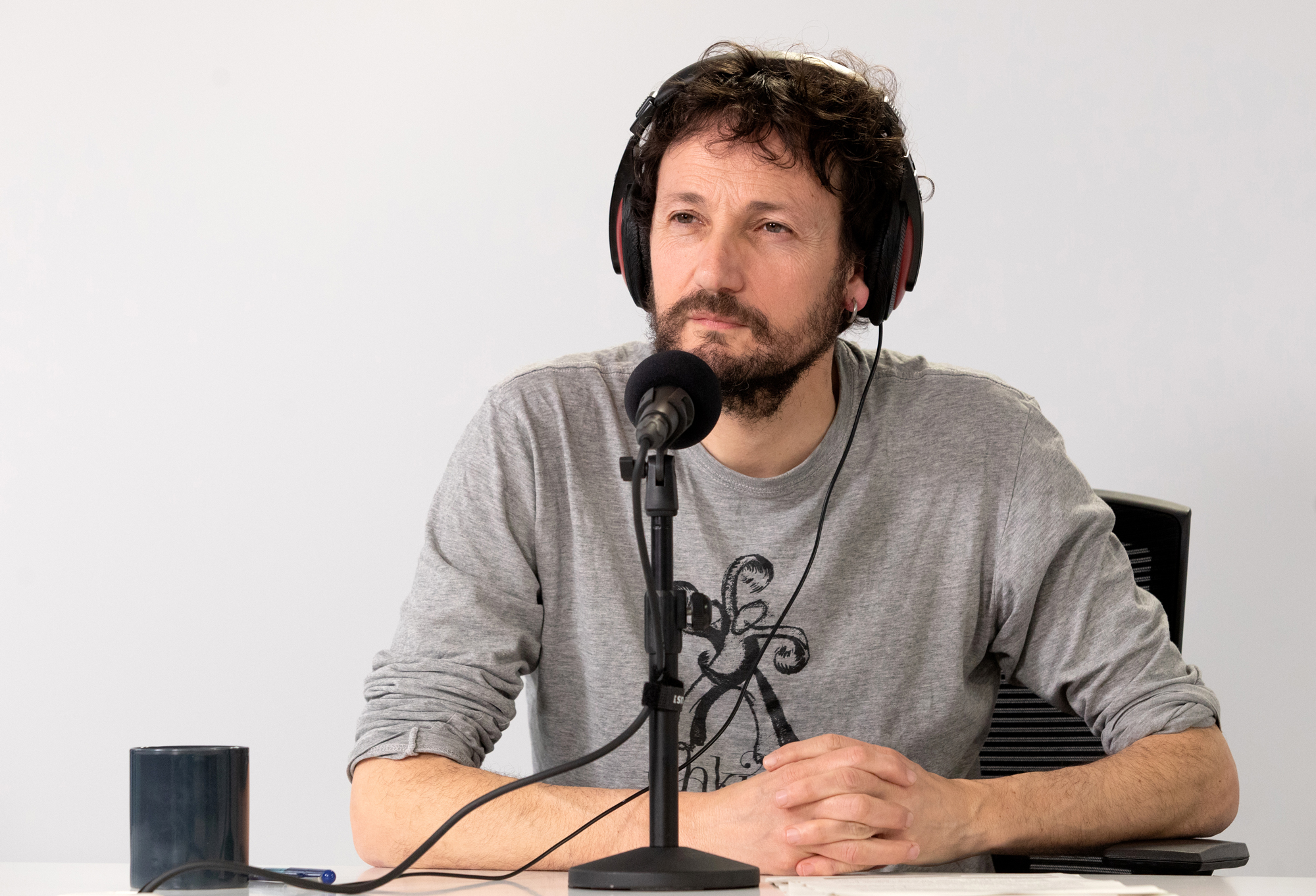We're children in the art of behel
The Wild Question podcast, which will feature children’s philosophy on the Axis, is intended to include children’s philosophy in workshops, not in vain. That’s what Iñigo Martínez promised us in this first episode. He has laid the foundations of the podcast, drawn the framework and, above all, reflected on childhood: because childhood is the most interesting period to ask questions. In the most optimistic sense, childhood is the time to waste time. That's the theme for the first chapter.

As adults, we feel like children again and again. With this premise, the Wild Questions podcast is launched. We had our first session on April 6th, and we equipped the reflection of Iñigo Martínez with countless voices and opinions. In the friendly company, also: Mozart's Little Serenade of the Night and 101 of Haydn. We've had a symphony behind our ears.
INSERT THE PODCAST
We are children in art when we talk about philosophy. Iñigo Martínez did not say that, nor did Joseba Sarrionandía, but yes, let’s be clear: surprise, as Aristotle said, is the driving force behind philosophy. And if you miss them more than anyone else, they are children. It is said that adults carry a child inside of us-and...
But don't we shut that kid up, hide him? If we were to pause and focus on the things we are supposed to do with inertia as well as the things around us, if we were to question and ask questions, would we be able to give answers? What kind of answers would that be? Do humans or adults have the power to respond to everything that seems basic? And starting to scratch more: what is it all about? Where are the boundaries if they exist? And if they're not, why aren't they?
Don’t deny the questions
“There is no more cruel political answer than to deny questions.” That’s how we heard Wild Questions in the first episode of the podcast, taken from a book by Primo Levi. To counter this, Martínez will use the LAR microphones for six Sundays. This is how it is addressed to the listener in the first chapter: “We, at least here, will give voice to the questions. But considering that the brutal questions that cross us, whether political or existential, are not purely theoretical questions, they are not only academic questions... They are also tremors, experiences; they are linked to life”.
Because asking questions is the essence of all this, Iñigo Martínez has traveled to childhood, as well as his guests who have accompanied him in the first chapter, such as the philosopher Jon Gederiaga and the psychomotricist Álvaro Berañán. The latter says that childhood is the time to play and also, of course, to build. Build, in the company of knowledge; and knowledge is often asked questions and found answers. Answers, even if they are temporary. Because we can question them later.
Childhood is, in the words of Iñigo Martínez, “a land of questions and positive ignorance”. To be ignorant is to be positively self-rated. Philosophy teacher Jone Ojea tells us that it’s like having “mud up to your knees”, not knowing the error of getting dirty, innocence, lack of prejudice, constant search for causes... “Childhood is the point where ignorance and the desire to know come together.”
Are adults afraid of that? Afraid to go down to the mud? I think the young man who spoke on the podcast.
And you, will you dare?








